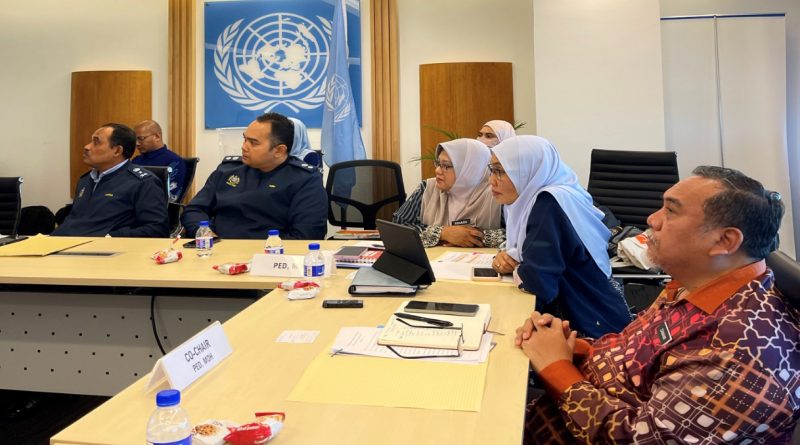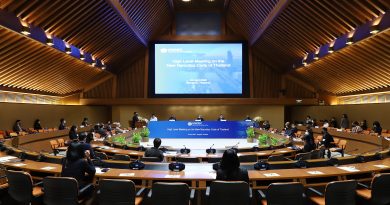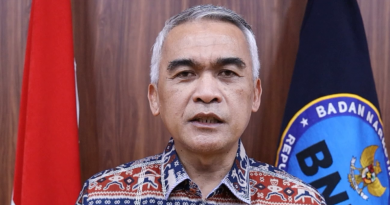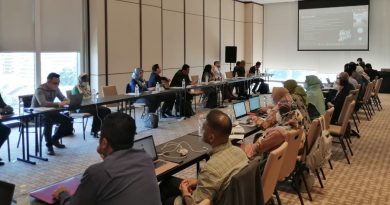Coordination meetings held with Malaysia and the Philippines on precursor control, information sharing and regional cooperation
UNODC has concluded a series of bilateral meetings bringing law enforcement and regulatory authorities in Malaysia and the Philippines to coordinate on improving precursor control, sharing information, and discuss methods to disrupt the trafficking of precursor chemicals used for the illicit manufacture of synthetic drugs. Organized jointly with the Pharmacy Enforcement Division, Ministry of Health of Malaysia, and the Dangerous Drugs Board (DDB) of the Philippines, the national coordination meetings are the first in a series of in-depth exchanges and technical training workshops to be delivered across the region since the winding down of COVID-19 travel restrictions.
The meetings in Malaysia and the Philippines were arranged following discussions about improving the monitoring and management of chemicals that have been found transiting countries across Southeast Asia into illicit drug production. However, while authorities in the region have pointed to the growing use of non-controlled chemicals in illicit drug production, current understanding of many of these substances remains limited.
Kuala Lumpur (Malaysia), 14 July 2023 – Discussions between UNODC and competent national authorities of Malaysia focused on sharing information regarding regulatory updates and the evolution of substances being leveraged by organized crime in the region together with latest trafficking trends observed from the Golden Triangle. Notably, this includes the routing of large maritime methamphetamine shipments for transit through Malaysia destined for neighbouring countries in Southeast Asia and Oceania.
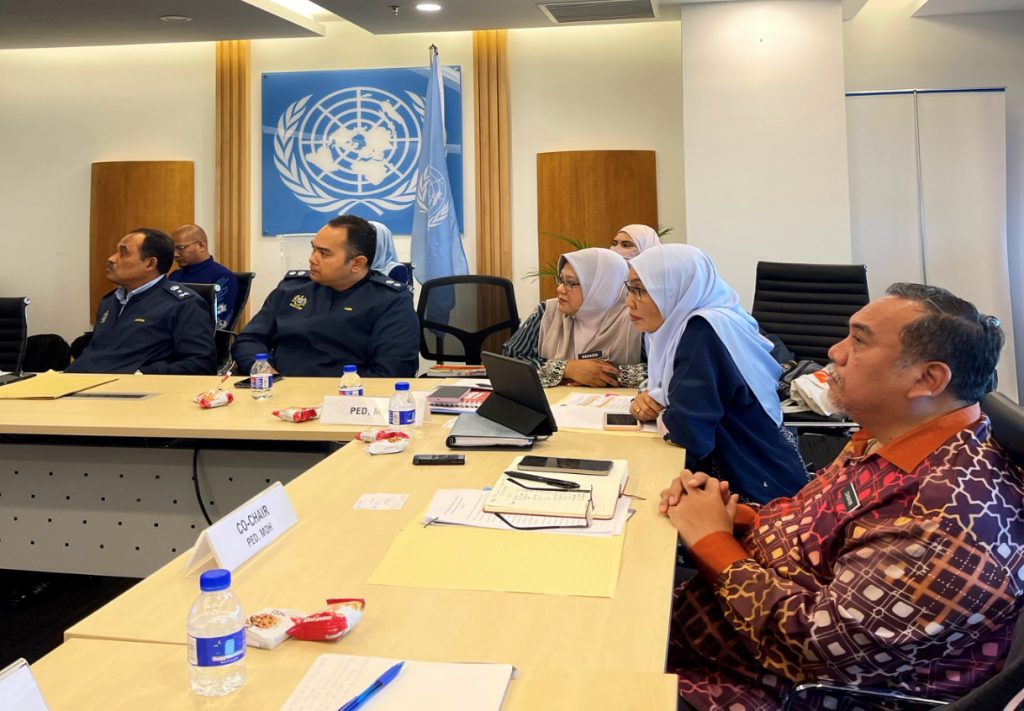
Manila (Philippines), 20 July 2023 – In opening the meeting between UNODC and competent national authorities in the Philippines, the DDB addressed several domestic precursor control challenges relating to inter-agency coordination as well as the growing importance of strengthening both regional and inter-agency collaboration, also citing the need to strengthen private sector coordination frameworks in the country. “We are very pleased to have an opportunity to convene the various authorities with precursor chemical responsibilities here with us in Manila and our long-standing partner UNODC”, remarked DDB Chairman, Secretary Catalino S. Cuy. “Precursor chemical diversion, trafficking, and drug supply reduction are major priorities for the Philippines. At the same time, recent developments in the region have made it clear that we need to update our understanding of the type of chemicals being used, and it is time to improve controls and interagency cooperation together with strengthening coordination with the private sector”, he added.
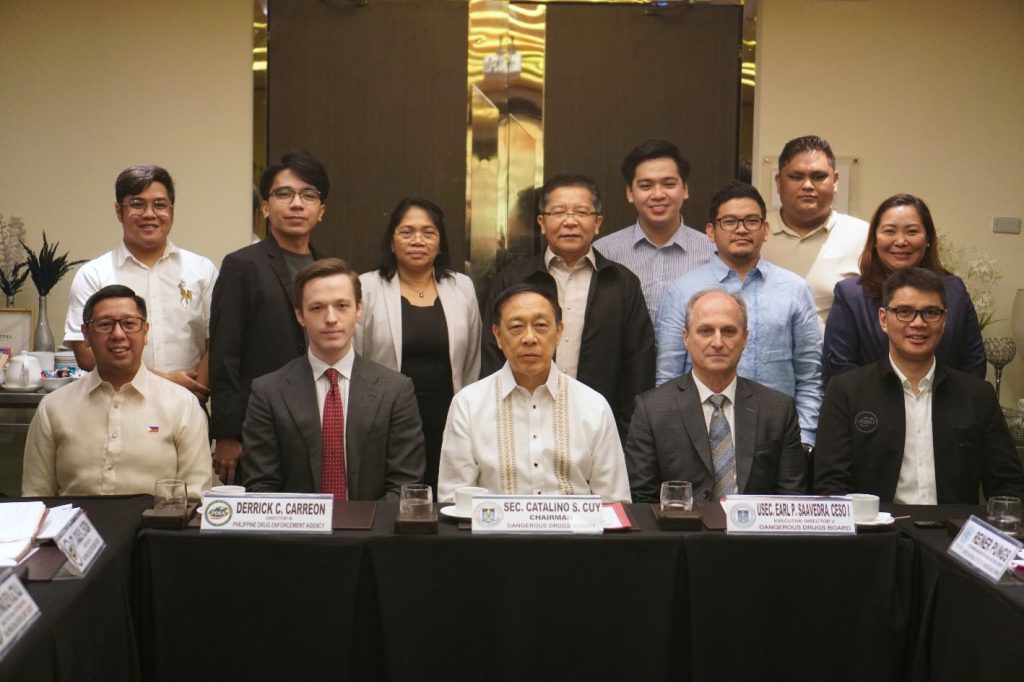
Facilitated discussions are also helping to improve inter-agency dialogue as a foundation for effective regional cooperation. “Coordination between competent authorities is fundamental, and cooperation at both the national and regional levels need to go beyond traditionally controlled substances”, commented Reiner Pungs, UNODC Drugs and Precursor Programme Manager for Southeast Asia and the Pacific. “UNODC’s regional precursor programme is supporting countries including Malaysia and the Philippines as well as neighbouring countries to understand and prioritize precursor chemical challenges, and to take necessary steps together to address diversion of and trafficking in precursor chemicals into illicit drug production.”
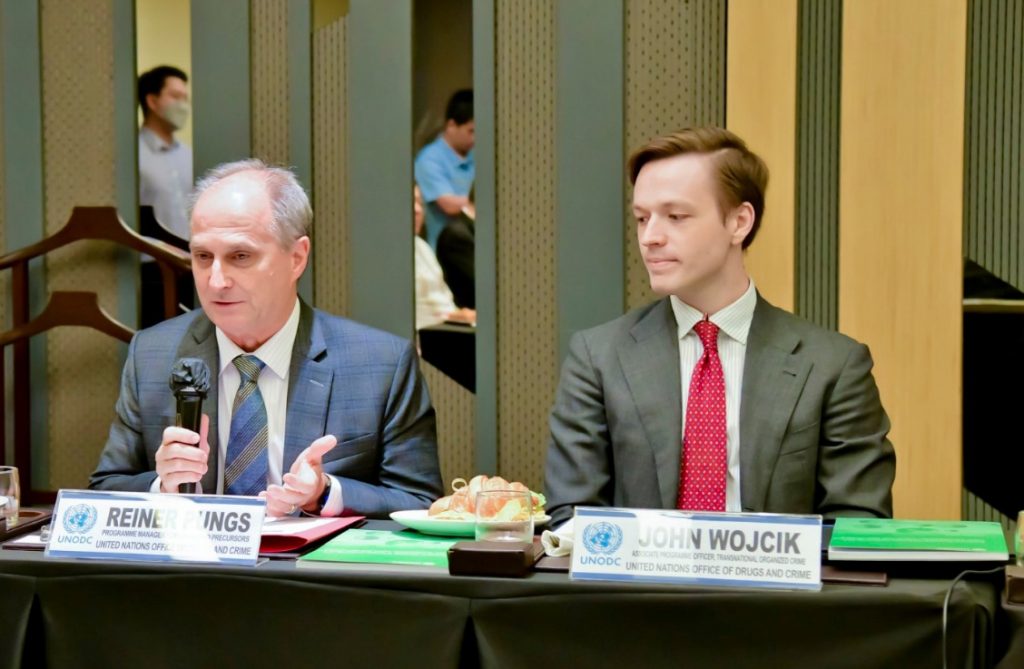
The organization of national exchanges and workshops was discussed between UNODC and authorities in both Malaysia and the Philippines, with a technical training agreed between UNODC and the Dangerous Drugs Board of the Philippines which is expected to take place in November following discussions about limited levels of awareness concerning the increasing flows of a variety of scheduled chemicals and non-controlled chemicals through the region. Maritime and customs authorities in both countries also requested specific training on precursor chemicals given low levels of awareness among frontline officers.
Training being delivered across the region are the first of their kind for Southeast Asia, and will be implemented in key locations by UNODC over the coming year to address precursor chemical challenges.
Click here to learn more about UNODC’s Regional Programme for Southeast Asia
Click here to learn more about UNODC’s work to address drug and precursor in the region
Click here to learn more about the Mekong MOU on Drug Control

